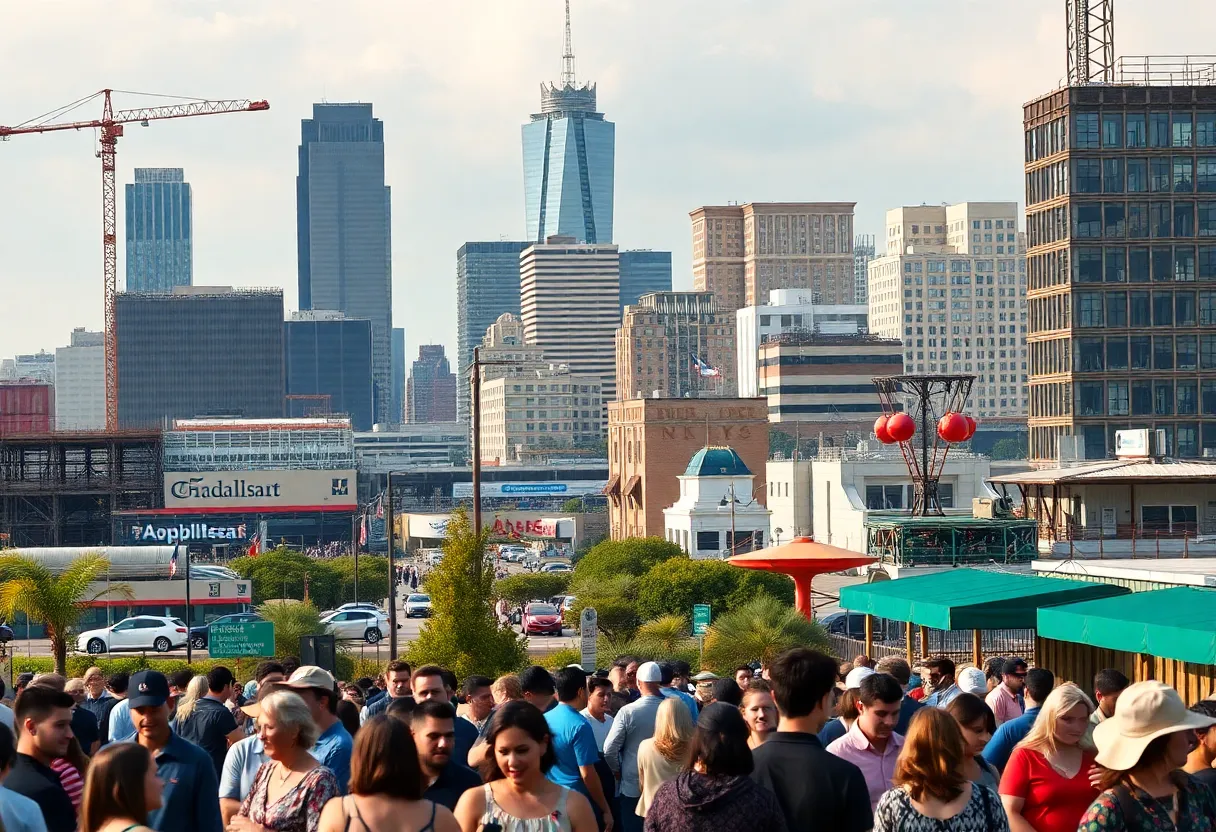

Dallas Economic Landscape
As President Trump’s immigration policies unfold, Dallas faces potential economic downturns due to a crackdown on undocumented workers crucial to the local economy. With 70% of construction workers in Texas from foreign backgrounds, the impact on construction, agriculture, and hospitality sectors raises significant concerns. Moreover, the tax contributions of undocumented immigrants play a vital role in supporting local services. Communities are coming together to address these challenges and emphasize the contributions of immigrants to the economy.
Dallas, Texas, finds itself at a crossroads as the ramifications of **_President Trump’s immigration policies_** unfold. Experts across the board are voicing concerns about the potential fallout on North Texas’s economy, especially given the substantial role that undocumented workers play in various critical sectors. With many livelihoods hanging in the balance, Dallas could face an unpredictable economic future.
The alarm bells started ringing in that first week of President Trump’s administration when **_U.S. Immigration and Customs Enforcement (ICE)_** initiated a series of raids nationwide. Given that Texas boasts one of the highest concentrations of **_unauthorized immigrants_**, cities like **_Dallas, Fort Worth, Arlington, Irving, and Garland_** have been on high alert, witnessing a surge in arrests that has sent shockwaves through local communities.
One industry staring down the barrel is construction, which plays an essential role in the region’s economy. It’s eye-opening to realize that about **_70% of construction workers_** in Texas come from foreign backgrounds, with nearly **_50% categorized as undocumented_**. This poses a severe threat to an industry valued at approximately **_$106 billion_**. As Dallas-Fort Worth continues to grow, the need for a steady workforce becomes even more pressing.
Unfortunately, the construction sector is already battling a labor shortage. An industry report from **_American Builders and Contractors_** reveals that the U.S. will require **_439,000 new workers_** by 2025 and **_up to 499,000_** by 2026 just to keep pace with increasing demands. Without a reliable labor force, skyrocketing labor costs could disrupt ongoing projects and force many to reconsider their feasibility. High-profile projects, such as data centers in the DFW area, are particularly struggling to find qualified candidates.
While construction feels the sting most acutely, other crucial sectors aren’t escaping unscathed. The **_agriculture sector_** heavily relies on immigrant labor, particularly for roles in meatpacking and egg processing. A rise in deportations could drive costs for these staples sky-high, affecting grocery bills for families across the region.
Meanwhile, the bustling **_hospitality and restaurant industry_** also hinges on a significant number of undocumented workers. As potential deportations loom, operational hurdles and limited service could soon become everyday challenges for local businesses trying to keep their heads above water.
Interestingly, it’s worth noting that undocumented immigrants put their money where their mouth is, contributing nearly **_$4.9 billion in state and local taxes_** in 2022. The looming fears of increased deportations could lead to a potential drop in tax revenue, impacting local government services that so many rely on.
The unrest doesn’t just stop at numbers; there are real societal implications, too. Recent executive orders propose significant changes to **_birthright citizenship_**, stirring anxiety among immigrant families. Changes might strip children born to undocumented parents or those in temporary statuses of their legal rights, creating widespread uncertainty.
With over **_480,000 Indian immigrants_** residing in North Texas, worries swirl around how potential changes could impact their children’s citizenship rights. Both educators and advocates are increasingly concerned that aggressive immigration enforcement in schools could disrupt the learning environment for undocumented children, leaving families anxious and uncertain about the future.
Throughout North Texas, communities are rallying, raising their voices against the consequences of these deportation policies. Protests have bloomed as families emphasize the essential role that immigrants play in boosting Texas’s economy, showcasing an unyielding sense of solidarity amidst these trying times.
As Dallas navigates this stormy economic sea, there’s a glimmer of hope. Community members and local businesses are coming together to tackle these pressing issues head-on. With economic interests at stake and countless families affected, now is the time for collective strength and innovative, forward-thinking solutions.
News Summary On June 14, thousands joined the nationwide 'No Kings' protests, with significant participation…
News Summary Texas has passed House Bill 346, aimed at improving the business climate for…
News Summary On June 14, thousands participated in 'No Kings' protests across Central Texas, including…
News Summary A wave of 'No Kings Day' protests unfolded across the U.S., uniting thousands…
News Summary Joseph R. Checklick Jr., a 21-year-old from Culpeper, faces charges for reckless driving…
News Summary Tens of thousands joined No Kings Day protests throughout Southern California, expressing their…